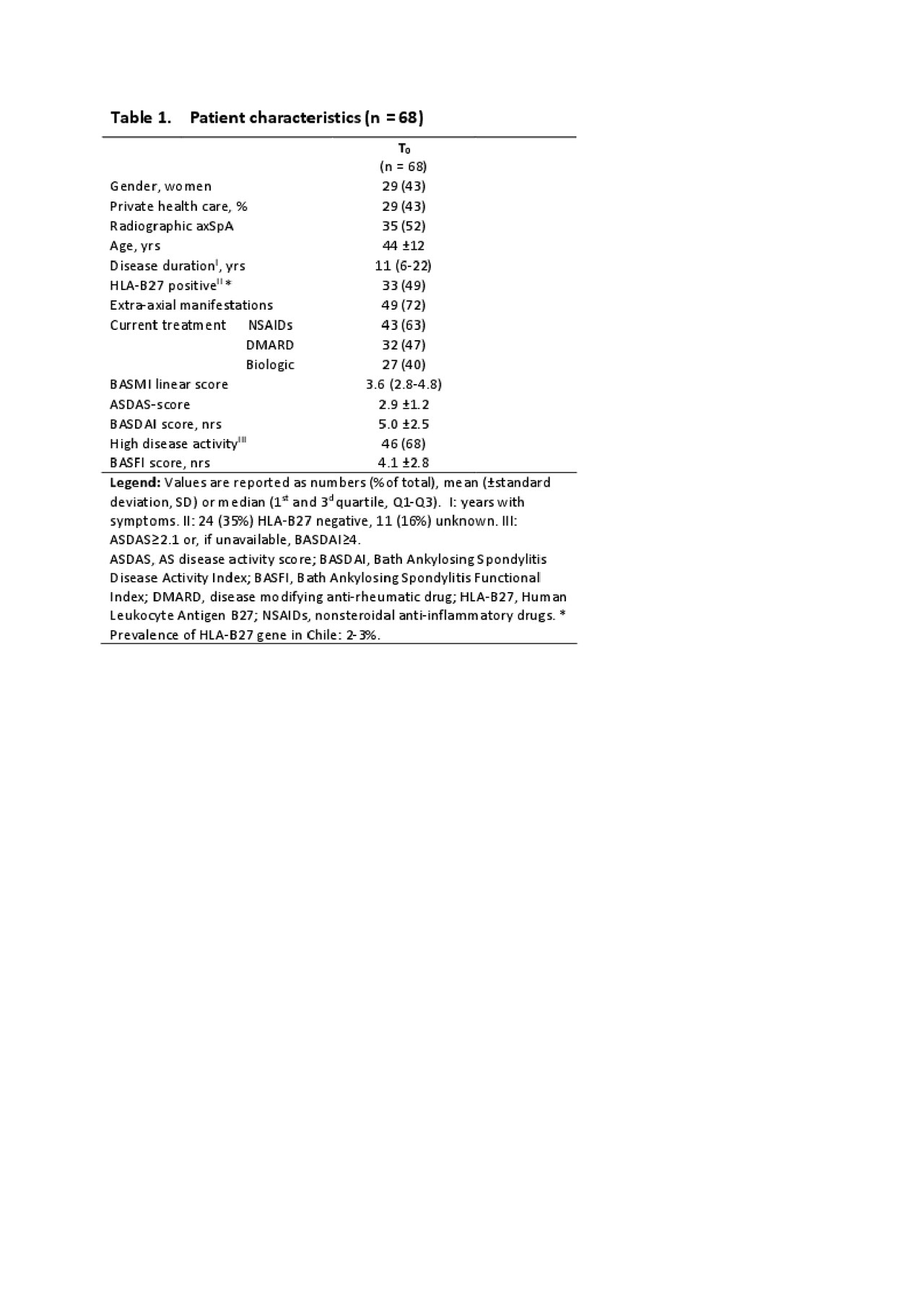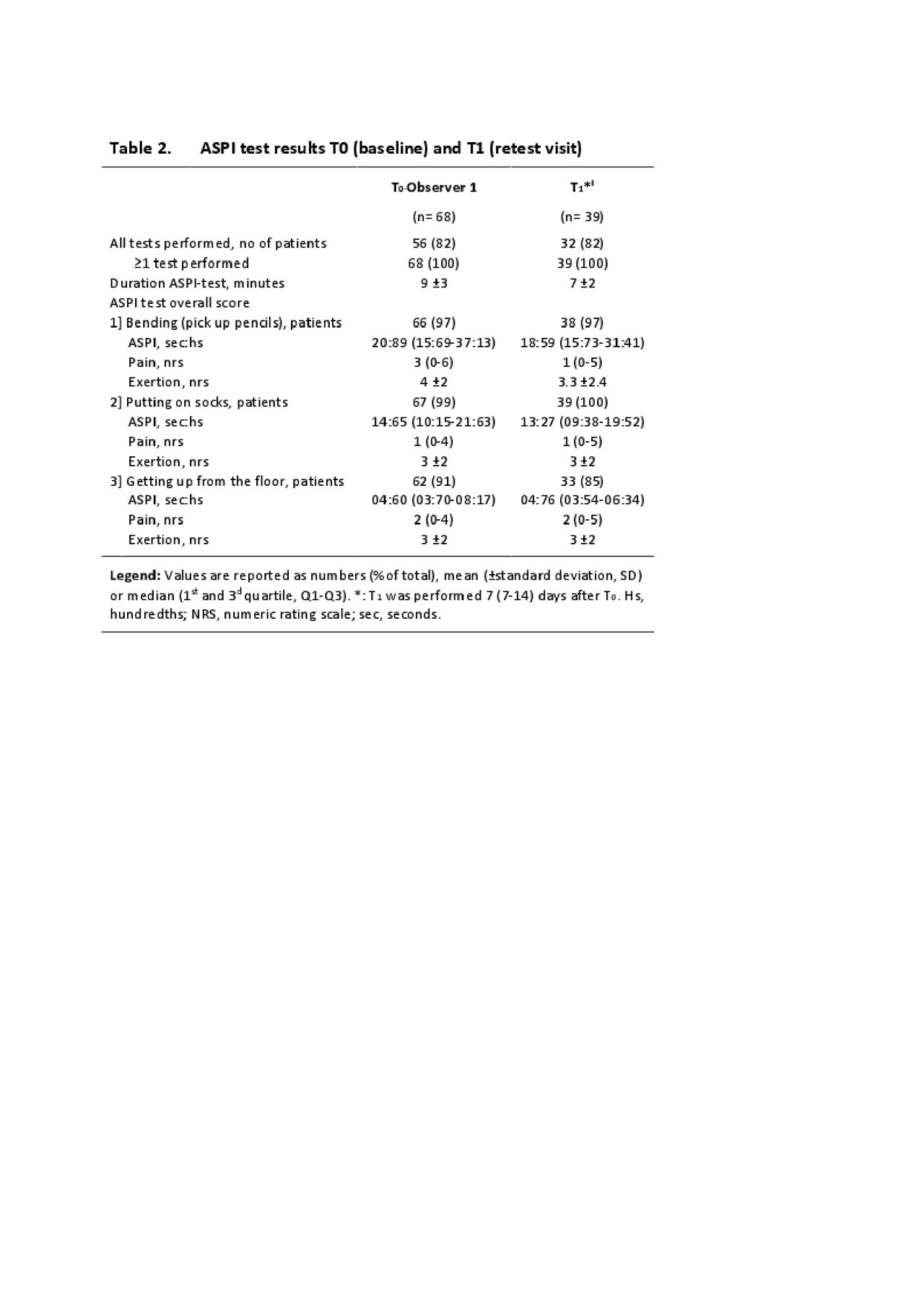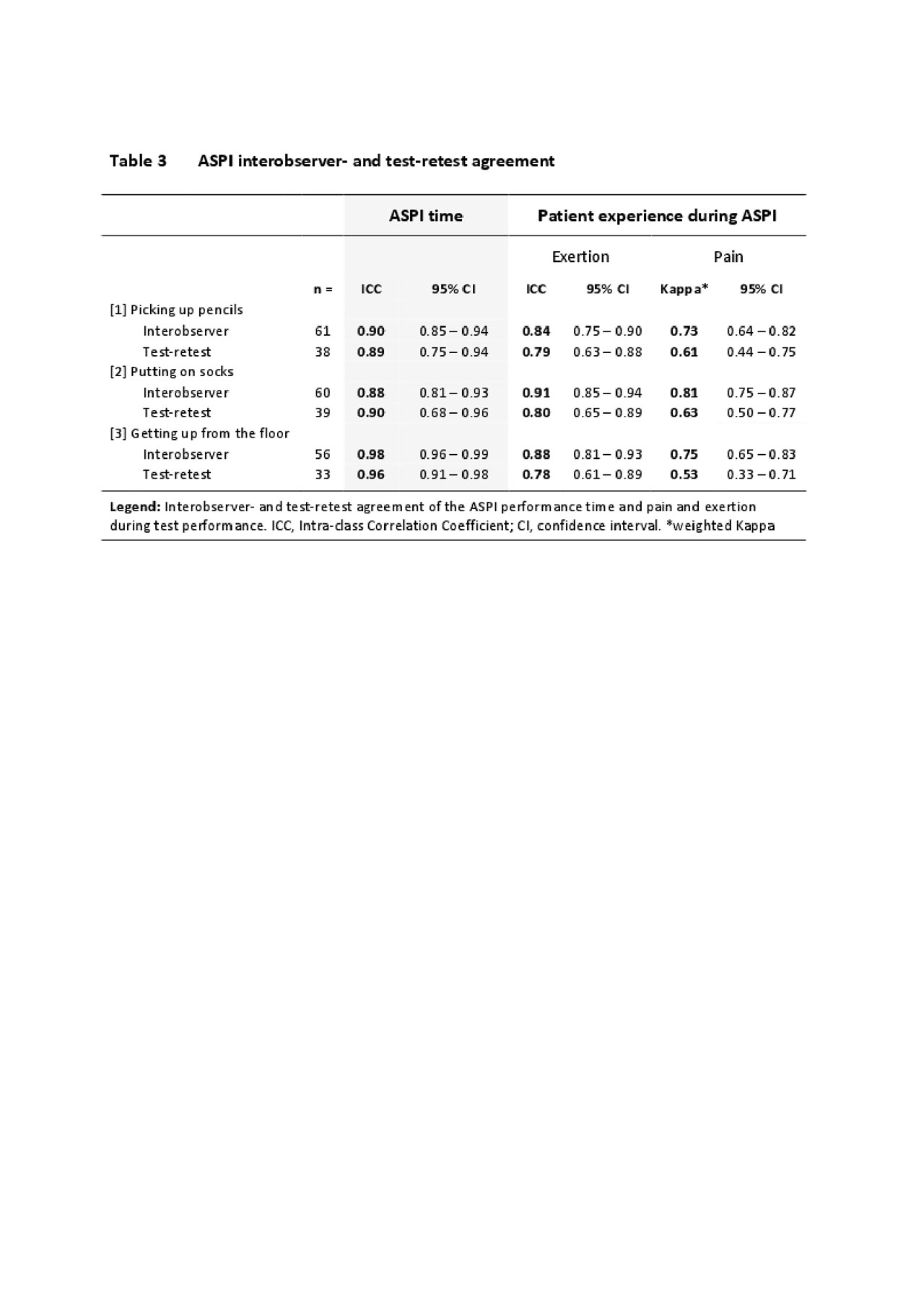Session Information
Session Type: Poster Session (Sunday)
Session Time: 9:00AM-11:00AM
Background/Purpose: In axial spondyloarthritis (axSpA), preservation of physical functioning is an important treatment goal and is usually assessed with the patient-reported BASFI questionnaire. The Ankylosing Spondylitis Physical performance Index (ASPI) test is the first test that assesses physical functioning in axSpA patients with a performance measure (1). However, the ASPI has only been validated in the Netherlands and the interobserver reliability was never evaluated. This study assessed the reliability (interobserver, test-retest) and feasibility of the ASPI test in axSpA patients in Chile.
Methods: The original Dutch ASPI patient instructions were translated into Spanish through a forward-backward procedure by 4 bilingual speakers (2 native Spanish, 2 native Dutch). Radiographic (r-axSpA) and non-radiographic (nr-axSpA) patients, fulfilling the ASAS classification criteria, ≥18 years old, were eligible for study participation. The ASPI consists of 3 tests: 1) ‘picking up 6 pencils one by one’, 2) ‘putting on socks’, and 3) ‘getting up from the floor’.(1) For each test the performance time was recorded (ASPI; seconds), as well as the patient-reported test-related pain (numeric rating scale, 0-10) and exertion (Borg-scale, 0-10). For test 2 and 3, the mean of three repetitions was calculated. To assess feasibility the total ASPI duration was recorded from the start of instructions until the end of the last test. At baseline, the ASPI was done twice in all patients, by two observers. Test-retest (intra-observer) reliability was done within 1-3 weeks after baseline. In addition, disease characteristics, current treatment, BASDAI, ASDAS, BASFI, CRP, ESR and spinal mobility (BASMI score) were collected. For reliability analyses intra class correlation coefficients (ICC absolute agreement) or weighted kappa (for nonparametric variables) were reported with 95% confidence intervals (95%CI).
Results: Sixty-eight patients were included (43% female, aged 44 (SD 12) years, 52% r-axSpA; Table 1). Inter-observer and test-retest reliability were tested in respectively 61 and 39 patients. At baseline, the mean ASPI duration was 9 (SD 3) minutes, and 82% was capable of performing all tests (Table 2). The ASPI interobserver and test-retest (intra-rater) reliability were respectively good to excellent (ICC 95%CI: 0.81-0.99; Table 3) and moderate to excellent (ICC 95% CI: 0.68 – 0.98), for all tests. The pain and exertion during the ASPI showed lower reliability (poor to good).
Conclusion: This study is the first to perform the ASPI in non-Dutch- and also nr-axSpA patients. Despite high disease activity and differences in treatment access between patients in Chile, the ASPI was highly feasible. Importantly, the ASPI had high interobserver and test-retest reliability. The test-retest reliability was even somewhat higher than reported previously. Therefore, the ASPI appears appropriate for objective evaluation of physical functioning in Latin American axSpA patients.
Reference:
1. van Weely SF. Objective evaluation of physical functioning after tumor necrosis factor inhibitory therapy in patients with ankylosing spondylitis: a selection of 3 feasible performance-based tests. J Rheumatol. 2015;42(4):623-9.

Table 1 – Patient characteristics

Table 2 – ASPI test results T0 and T1

Table 3 – ASPI interobserver- and test-retest agreement
To cite this abstract in AMA style:
van Bentum R, Ibáñez Vodnizza S, Valenzuela Aldridge F, Poblete M, van weely S, ter Wee M, Valenzuela O, van der Horst-Bruinsma I. Objective Ankylosing Spondylitis Physical Performance Index (ASPI) Is Highly Reliable and Feasible in Chilean Patients [abstract]. Arthritis Rheumatol. 2019; 71 (suppl 10). https://acrabstracts.org/abstract/objective-ankylosing-spondylitis-physical-performance-index-aspi-is-highly-reliable-and-feasible-in-chilean-patients/. Accessed .« Back to 2019 ACR/ARP Annual Meeting
ACR Meeting Abstracts - https://acrabstracts.org/abstract/objective-ankylosing-spondylitis-physical-performance-index-aspi-is-highly-reliable-and-feasible-in-chilean-patients/
